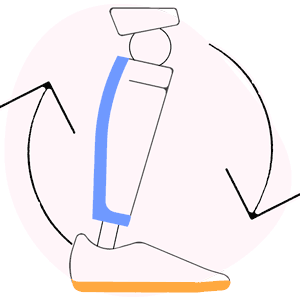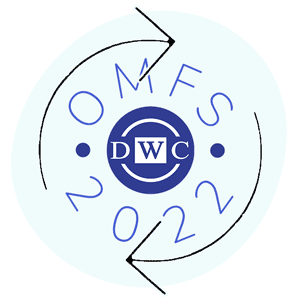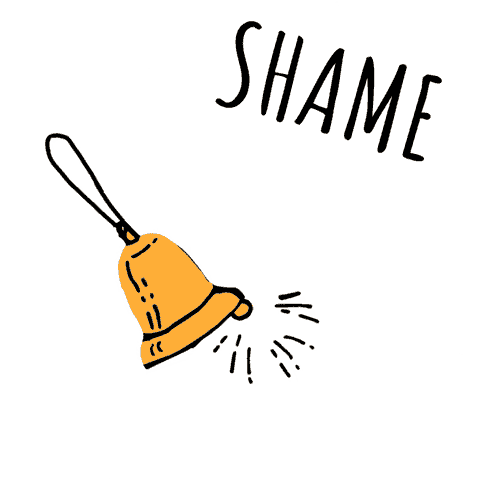Farmers Insurance: Winning "IBR Chicken”

California workers’ comp technically offers an appeals process for providers to dispute incorrect reimbursements. However, this appeals process actually encourages claims administrators to underpay and falsely deny bills from providers who treat injured workers.
Unfortunately (for providers), California law allows claims administrators to manipulate the appeals process in order to withhold proper payment. For example, Farmers Insurance withheld proper payment to an Agreed Medical Evaluator (AME) as follows:
- Farmers Insurance refused to reimburse at Medical-Legal Fee Schedule (MLFS) rates for an evaluation by the AME, withholding $277.50 by denying MLFS modifier -94 for AME services.
- Farmers falsely denied the AME’s Second Review appeal, which included letters designating the physician as the AME, and therefore entitled to payment under modifier -94.
- Only after the evaluator paid $180 and filed for Independent Bill Review (IBR) did Farmers properly reimburse the AME — before the DWC or its IBR proxy, Maximus, could actually conduct the IBR.
If this AME had failed to expend the administrative resources to either timely submit the Second Review appeal or timely pay $180 to request IBR, California law would have allowed Farmers Insurance to keep the AME’s reimbursement.
Yet (magically), the moment the AME requested IBR, Farmers Insurance capitulated and remitted the disputed amount.
Essentially, when claims administrators improperly underpay and deny bills, California law penalizes providers by forcing providers to expend administrative resources (and $180) to receive proper payment. Claims administrators are well aware most providers will capitulate, rather than expend the resources and fees necessary to dispute incorrect reimbursements.
Worse, even when the provider prevails at IBR, claims administrators often refuse to reimburse the provider the $180 IBR fee. Claims administrators also rarely (read: almost never) pay the provider the mandated self-executing penalty and interest payments.
Question: How is this possible? Answer: There are no regulations which force claims administrators to comply with either California IBR laws or penalty and interest laws.
The California workers’ comp appeals process is a classic Game of Chicken. Below, we explain exactly how California law ensures that claims administrators always win this game — one way or another.
Payment Strategy: Falsely Deny/Underpay Bills & Wait
When a claims administrator underpays or falsely denies a bill, California law allows the claims administrator to keep a provider’s purloined reimbursement unless the provider is prepared to take both of the following steps to dispute the incorrect bill adjudication:
- Expend significant administrative resources to send a Second Review appeal within 90 days of receiving the Explanation of Review (EOR) for the incorrectly reimbursed original bill.
- Expend further administrative resources (plus $180) to file for IBR within 30 days of receiving the denied Second Review appeal.
Because this dispute process is so onerous for providers, California laws effectively motivate claims administrators to pay less than the amount owed, then simply wait for the following:
- To see if the provider sends a Second Review appeal. If not, simply keep the provider’s reimbursement (cha-ching). If so, just click the ‘deny’ button.
- To see if the provider pays $180 to file for IBR? If not, simply keep the provider’s reimbursement (cha-ching). If so, just pay the disputed amount.
Once the provider fails to either send a timely Second Review or pay $180 to file for IBR, the claims administrator wins. If the provider pays $180 to file for IBR, no problem; pay the provider, and repeat the process of underpaying/denying for the next bill. (Don’t worry about reimbursing the provider the $180 IBR fee, because there are no regulations that enforce this requirement).
Repetitive underpayments and false denials will eventually overwhelm the provider and their staff with the work necessary to undertake appeals. Even the savviest provider cannot expend the necessary administrative resources and pay $180 to file for IBR for every improper payment.
The sheer volume of payment abuse (from hundreds of claims administrators) will eventually cause the provider to capitulate. Just wait.
Farmers Insurance Falsely Denies & Waits
In our Farmers Insurance example, Farmers improperly denied MLFS modifier -94 for AME services, for a supplemental Medical-Legal evaluation (ML203). The EOR is shown below.
Of course, modifier -94 is applicable to ML203, and there is no question as to this physician’s status as AME. The Second Review appeal included attorney letters specifically designating the physician as AME.
Rather than paying the AME’s Second Review appeal, Farmers Insurance simply clicked the deny button, and waited.
“IBR Chicken” - A Game Rigged for Payers
Farmers Insurance denied the Second Review appeal. The AME called Farmers’ bluff, paying $180 to file for IBR on November 29, 2021.
Remember, the claims administrator keeps the provider’s reimbursement unless the provider timely (within 30 days of the final EOR) requests IBR. When the provider pays $180 to file for IBR to dispute an improper payment, IBR Chicken commences.
On behalf of this provider, daisyCollect assembled the required detailed packet of information, indexed the documents correctly, and paid the $180 IBR filing fee (refundable in full only if the provider prevails).
Less than a month later, and before IBR commenced, Farmers Insurance paid the disputed amount on December 22, 2021. But this “win” for the provider came at a significant cost — certainly a higher cost than the $277.50 Farmers attempted to withhold.
The payment Farmers sent to the AME did not include:
- Self-executing penalty and interest payments
- Any portion of the $180 IBR filing fee paid by the provider
- Any portion of the absurd amount of administrative expenses the provider incurred pursuing correct payment
This is not an isolated incident. Clearly, claims administrators are waiting until after the filing of an IBR application to properly pay some of their bills. Unfortunately, nothing in the regulations prevents claims administrators from making such belated payments.
In other words, the California laws and processes governing provider appeals to dispute incorrect reimbursements are broken, and actually serve to encourage — not deter — improper payment. And when providers push back, California law guarantees the claims administrator wins.
Protect your practice. Harness the power of daisyBill software, data, and expertise for faster, better workers’ comp billing.
GET IN TOUCH
DaisyBill provides content as an insightful service to its readers and clients. It does not offer legal advice and cannot guarantee the accuracy or suitability of its content for a particular purpose.





.gif)
